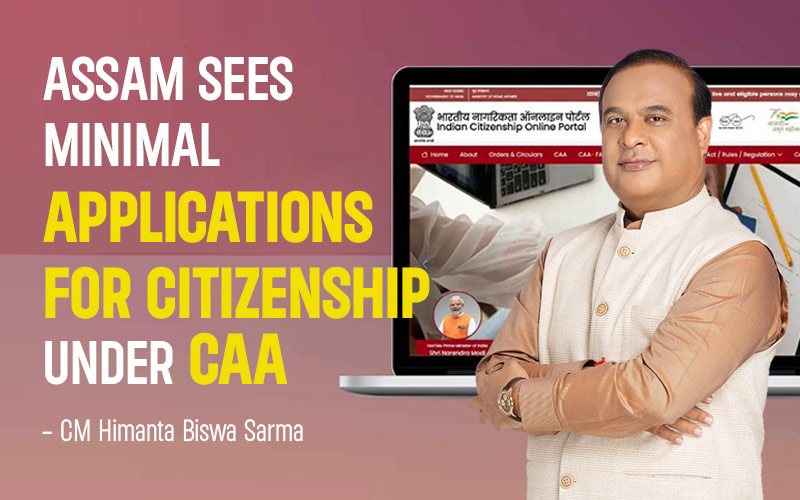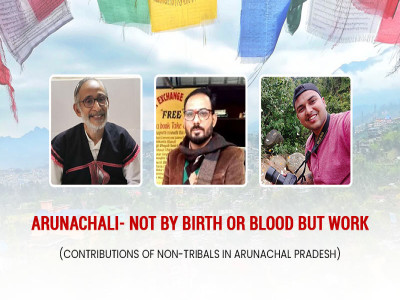
Assam Sees Minimal Applications for Citizenship Under CAA, Says CM Himanta Biswa Sarma
Assam has received only eight applications for citizenship under the
Citizenship Amendment Act (CAA), with six applicants still pending interviews,
Chief Minister Himanta Biswa Sarma revealed on Monday. The CM expressed surprise
at the low number of applications, which stands in stark contrast to
expectations that the Act would significantly increase the state's population.
During a press conference in Guwahati, CM Sarma disclosed that he
personally contacted several Hindu Bengalis to understand their reasons for not
applying for citizenship under the CAA. Their responses indicated a lack of
conviction that applying under the CAA was appropriate for them. Many families
mentioned that they had entered India before 1971 and preferred to prove their
citizenship through the court of law rather than through the CAA.
CM Sarma emphasized that individuals with pending citizenship cases in
court should consider applying under the CAA. However, sources suggest that
many are unlikely to follow this advice. The reluctance to apply stems from a
belief among these communities that their long-term residency in India should
naturally entitle them to citizenship without the need for CAA intervention.
The CAA allows non-Muslims from six communities—Hindus, Sikhs,
Buddhists, Jains, Parsis, and Christians—who entered India from Pakistan,
Afghanistan, and Bangladesh before December 31, 2014, to apply for citizenship.
This legislative measure was designed to offer a fast-tracked path to
citizenship for these communities, presumed to be fleeing religious
persecution.
The State Home Department has instructed the police not to refer cases
of these communities to the foreigner’s tribunal if they entered India before
the cut-off date. The communication explicitly states that "these
communities have the right to claim their citizenship under CAA." This
directive aims to protect eligible individuals from undue legal challenges and
streamline their path to citizenship.
CM Sarma clarified that the state is not dropping cases against Bengali
Hindu immigrants in various foreigner’s tribunals. "We cannot drop any
case. Once a case goes to the tribunal, I can’t give any directive. But the
tribunal’s judges are aware of CAA. So, they have to act according to the law.
But I can tell a public prosecutor to flag the amended provision at the
tribunal hearing," he explained. This approach aims to ensure that
tribunal proceedings acknowledge the amended citizenship provisions under CAA,
potentially benefiting those eligible under the Act.
The minimal response to the CAA in Assam has puzzled many, as initial
assumptions suggested a much higher impact on the population. Analysts and
policymakers are closely monitoring the situation to understand the underlying
reasons for the tepid response and to address any concerns or misconceptions
about the Act.
As the state navigates the complexities of implementing the CAA, the
focus remains on ensuring that the legislative intent of providing a safe haven
for persecuted minorities is realized, while also respecting the legal
frameworks and historical contexts of long-term residents. CM Sarma's ongoing
engagement with affected communities highlights the government's commitment to
transparent and inclusive governance in addressing citizenship issues.
Disclaimer: The opinions expressed in this article are those of the author's. They do not purport to reflect the opinions or views of The Critical Script or its editor.

Newsletter!!!
Subscribe to our weekly Newsletter and stay tuned.

















Related Comments